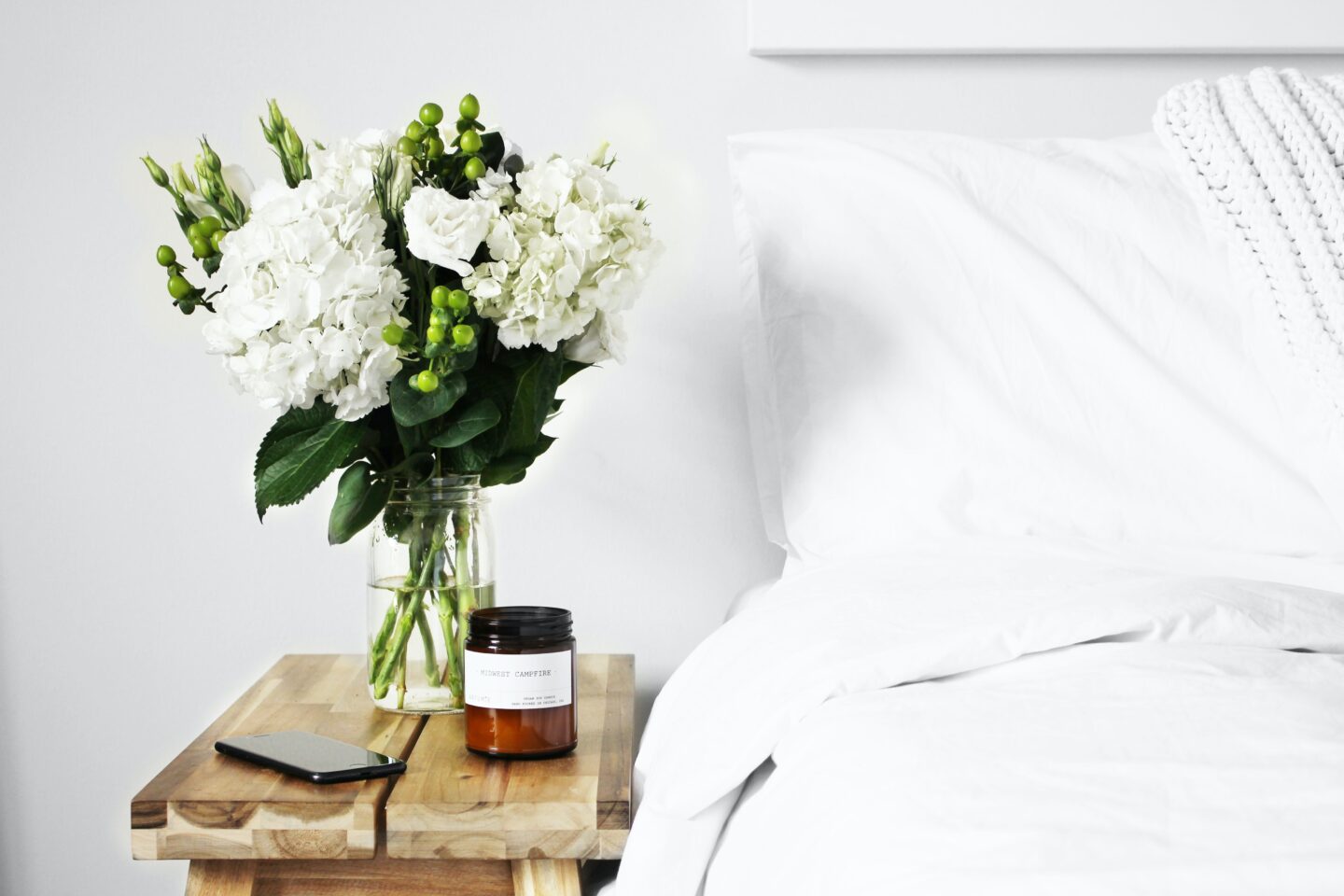
It’s fair to say that our days feel excruciatingly long at the moment. For many of us, thanks to lockdown, our daily routines have been tossed out the window and we’re left with a strange emptiness.
But whilst your daily routine might not be quite the same due to the ‘new normal’ – one thing you can take control of is your nighttime ritual.
We spend one-third of our life sleeping, or at least trying to sleep. To put that into perspective, that’s 33 years roughly. That’s a long time. So we might as well make our time attempting to sleep a pleasant experience, yes?
The normal amount of time to fall asleep according to the sleep council is ten to twenty minutes. If it takes you longer than 30 minutes, apparently your sleep efficiency drops.
With everything going on in our external world, drifting off into a peaceful slumber isn’t always easy. But a sleep routine can really help.
Kids have a strict bedtime routine for a reason. This often involves a bath and some stories which helps them drift off. Well, creating our own adult bedtime routine has a similar impact!
So, to help you slip off into dreamland a little more easily, we’ve examined the key components to a successful sleep routine.
Ideas for your bedtime routine

Image by Logan Nolin
First up, you might want to set a reminder or an alarm for when you want to start your bedtime routine. It’s easy to accidentally stay up late night after night if you don’t set yourself a target.
White noise or calming music
Or even just silence, if that’s possible where you live. A study found that half of the participants improved their sleep quality when noise and light were eliminated.
Declutter
Walking into a cluttered, messy bedroom each evening isn’t going to help you feel calm. Your bedroom doesn’t need to be perfect but clear some of the clutter if you’ve left stuff lying around.
Get the room temperature right
According to the Sleep Foundation, the ideal temperature for improved sleep is around 18.3 degrees celsius. The general range is usually between 15 and 20 – but everyone is different. Play around with different temperatures to see which gives you the best shut-eye. Then, each night before you head up to bed, make sure your room is at the right temperature (though this isn’t always possible on boiling hot summer nights, but try and cool it down as much as possible!).
A soothing pre-bedtime cuppa
Night Time tea anyone? Find your ideal night time tea blend packed with soothing herbs and enjoy a warm tea each evening. Just remember not to have it too close to bed or you’ll be needing the loo through the night!
Pre-bed relaxation
Meditation can be an effective way to calm a frantic mind, but if that’s really not your thing, that’s OK. You just need to figure out what is, and add it to your bedtime routine. You could try anything that helps you relax before bed, including things like reading, having a bath or simply doing some deep breathing.
Make sure your bed is comfy and inviting
If you want to have a decent night’s sleep, you need to invest in a comfy bed. Once you’ve got the perfect mattress and a gorgeous bed frame, all you have to do during your bedtime routine is make sure it looks inviting. Fluff up your pillow, add a warm comfy throw and make the bed look nice. It will feel oh so much more inviting.
Spray some sleep-inducing scents
It may not work for everyone, but loads of people absolutely swear by pillow sprays. Spritz a snoozy scent onto your pillow or use a calming room spray (we love this one) each night to set the mood before bed.
Turn down the lights before bedtime
Howtosleepwell.org recommends dimming the lights about an hour before bedtime. Shutting down the lights helps your mind move from day to night. By steering clear of bright light, you help the production of melatonin, a sleep improving hormone. So any electronics including phones, tablets or laptops are a huge no no if you want a decent night’s kip. If you can, keep them out of the bedroom.
Go to bed at a set time
Having specific bedtime and wake up times helps your mind get into a routine and makes your internal body clock happy.
Block out the light
Simple yet effective. Get blackout curtains or buy yourself a plush sleep mask that you can wear each night in bed. We’ve tried several sleep masks and we’re yet to find the perfect one – if you’ve got any recommendations feel free to share :-)
Write down things on your mind
Ever gone to bed feeling like your head is spinning with worries and things you have to do? Don’t let those pesky concerns whirl around – write them down! Jotting down a to-do list for the next day or the things you’re worried about can really take a weight off your mind.
We hope you find some of these ideas helpful. Below you’ll find an example of a bedtime routine. You’ll just need to figure out what works for you and tailor your plan accordingly. It doesn’t have to be complicated. Good luck!!
8pm evening sleepy tea cuppa
9.30pm start winding down, turn tv off, head upstairs
9.35 jump in the shower
9.50pm spritz some sleep inducing room spray around your bedroom
10pm aim to be in bed by this time
10.01pm jot down any worries on a notepad
10.05 read your favourite book in bed
10.20 turn on white noise or relaxing music, put on face mask and try and drift off
Main image by Ann Danilina
